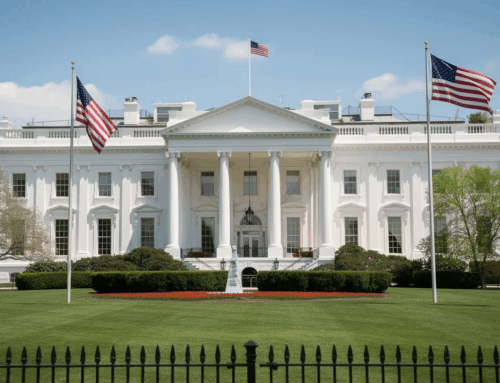Congress passed the One Big Beautiful Bill Act (nicknamed “Big Beautiful Bill”) this year. This law covers many areas, like taxes and spending. It also covers federal policy changes. It does not explicitly mention cannabis and marijuana in its text.
Yet, parts of it may ripple into this field of herbs in surprising ways.
In this post, we will explain
- what the Big Beautiful Bill does,
- what indirect effects it might bring
- How Might the “Big Beautiful Bill” Affect the Cannabis Industry?
- what people in this business should watch out for.
What Is the Big Beautiful Bill?
The One Big Beautiful Bill Act (or OBBBA) became law on July 4, 2025.
It rolls hundreds of tax and spending measures together in one large package.
Because it has a broad reach, some industry watchers expect it might affect areas that this herb sector cares about, like
- Banking
- federal protections
- The way these products are regulated.
But those effects will mostly be indirect. They will not be direct mandates on this industry.
Key Ways It Could Affect This Industry
Below are the chief channels by which the Big Beautiful Bill might influence products related to these herbs
1. Removal of Federal Protection for State Medical Programs
In decade-long federal budget bills, lawmakers historically included the Rohrabacher-Blumenauer Amendment (and similar riders). That amendment prevents the U.S. Department of Justice from spending federal funds to interfere with state medical laws on this herb
But in the Big Beautiful Bill, Congress omitted that protection.
That could leave state-legal medical programs on this herb more vulnerable to federal enforcement actions. But no immediate crackdown has been announced.
For businesses associated with this industry and patients in states where medical programs operate, this change injects uncertainty. Providers may be more cautious. Patients may worry about federal legal risks, even though states still permit use.
2. Banking and Financial Services Pressure
Marijuana remains federally illegal under the Controlled Substances Act. So banks and credit institutions shy away from serving these businesses. Many operate heavily in cash.
Some in Congress see the Big Beautiful Bill as clearing the way for further banking reform for these businesses, like the SAFER Banking Act.
The hope is that, with the big budget bill passed, lawmakers can turn attention to financial legislation.
If banking reforms follow, companies associated with this herb might access loans. They may get access to credit and services that are currently off limits. That shift would help growth. It will reduce security risks. It will enable more stable business operations.
3. Hemp and Cannabinoid Products Redefined
One of the most direct effects of the Big Beautiful Bill relates to the way products derived from these herbs get regulated.
Under the 2018 Farm Bill, “hemp” is cannabis with no more than 0.3 % delta-9 THC on dry weight.
Products that use delta-8, delta-10, or THCA exploited a loophole. They derived these from hemp, and they weren’t always explicitly controlled.
The new law and related appropriations contain provisions that would redefine hemp to include a cap on total THC.
It might also ban products made and altered outside the plant (synthetic and processed ones).
If those changes hold, many products that now thrive in loosely regulated markets may fall under stricter control. They may even become treated like marijuana.
That fact means businesses in the botanical sectors must watch the new rules. They must test their products. They must be ready for a regulatory shift.
4. Market Uncertainty and Investment Risk
Parts of the bill produce ambiguity, especially the lack of a clear federal policy on this herb. So investors may become more cautious. Some may pull back funding from these ventures until things stabilize.
When banks and federal regulators remain uncertain, the cost of capital rises. Startups and smaller players could struggle more than the established firms. Some proposals in the spending law may even close loopholes that allowed certain intoxicating hemp products to exist.
In short, regulatory risk rises. Many businesses may delay expansion. They may also delay hiring and new product launches. They will wait for clarity.
What the Big Beautiful Bill Does Not Do
It does not legalize marijuana at the federal level.
It does not directly change this herb use laws in states. States with legal medical and recreational programs continue under their own rules.
It does not impose immediate bans on these herbs. But related appropriations bills may move in that direction.
It does not solve banking and regulatory issues automatically. Any such reforms must pass separate legislation.
Essentially, the Big Beautiful Bill opens possibilities. It shifts risk. It changes the landscape. But it does not by itself remake this herb industry overnight.
What Stakeholders Should Do?
If you operate in these markets, here are the steps you should take now:
Stay alert to new rules and interpretations. Regulatory agencies may issue guidance about the way to apply new definitions (like “total THC”).
Audit your products. Test batches and make sure that there is compliance with the old standards. If definitions shift, adjust formulations and packaging. Also, change the labeling ahead of time.
Engage in advocacy. Join industry organizations. Push for clear and fair rules. Many voices influence the way enforcement and clarifications evolve.
Plan for financial needs. If you expected to get banking access soon, prepare fallback plans
Educate customers. Let them know when products change and when rules shift. Tell them ways to remain compliant. Transparency builds trust.
Follow appropriation bills and farm bill provisions. Many of the changes to rules pertaining to these herbs originate in appropriation or agriculture law threads. So watch those closely.
A Human Perspective
If you talk to farmers who grow this herb and entrepreneurs launching wellness brands. They all feel the same tension. They hope for clearer rules. But they fear sudden bans and regulations.
They fear that they planted thousands of dollars’ worth of seed. If regulators tomorrow classify half of the crop as illegal, that destroys them.
A wellness business founder may worry that “My clients rely on my tinctures. But if definitions change, I may have to pull products off shelves and lose income.”
Patients may say that “I depend on these products for anxiety relief. I don’t follow filings in Congress. I just hope my supply stays legal.”
For these people, policy is not an abstract debate. It is their livelihood and their health. So changes in laws and even omissions carry real weight.
If the Big Beautiful Bill ushers in clarity and fair rules, the industry could grow stronger. But if it leaves enforcement gaps and regulatory chaos, it could hurt many who already operate on thin margins.
What to Watch in the Coming Months
Will DOJ and federal agencies act on enforcement where protections were omitted?
Will Congress introduce/ pass banking/ cannabis reform soon, leveraging the new momentum?
Ways in which agencies define “quantifiable amounts” of THC under the new hemp definitions
Will markets begin preemptive withdrawal and reformulation of products derived from these herbs?
Ways in which the states respond. Will they pass their own laws to protect and regulate?
Conclusion
The Big Beautiful Bill of 2025 does not directly mention the herb and legalize it. Yet, through the omission of long-standing protections and the redefinition of hemp, it casts a shadow over this industry. The effects will depend on regulatory follow-up. They will also depend on agency rules and later legislation.
Businesses must prepare. They must stay informed and engage in shaping the path forward. The people who depend on these products need clarity. They want fairness and stability. The coming months will show whether the “beautiful” in the name becomes beneficial for them.
For more on this, speak to Ezmedcard.





